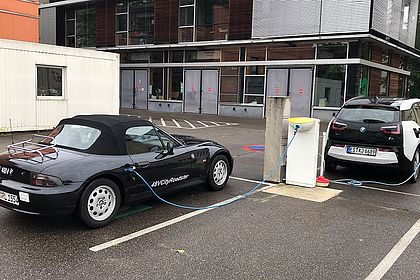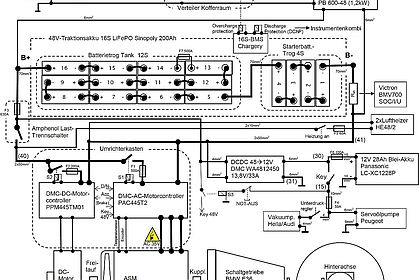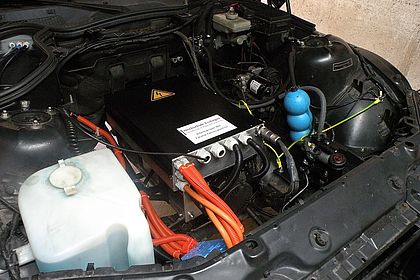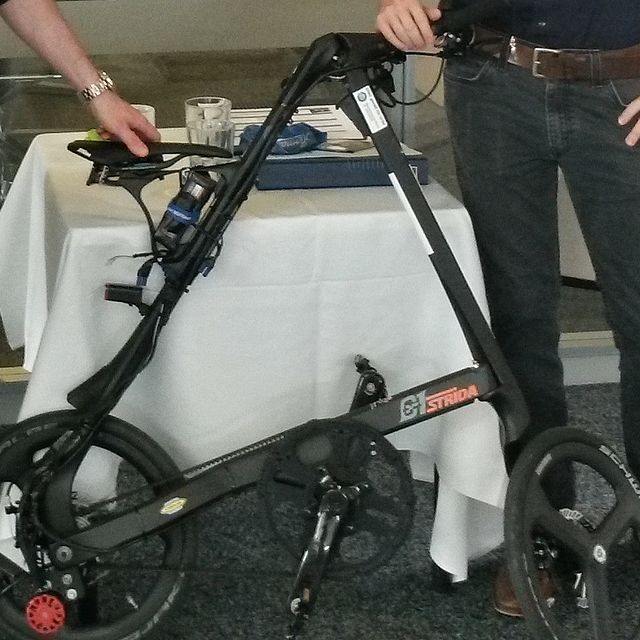Background
Although the high-voltage electrification of vehicles with traction battery voltages of several hundred volts allows hybrid or purely electric drive chains to achieve a considerable performance, it also has considerable disadvantages regarding costs, maintenance effort and safety. The 48V research group is therefore looking for technical solutions whereby extra-low-voltages below 100V and intrinsically safe electrochemical storage systems can be used to enhance the main electrification potentials of future diesel-powered commercial vehicles, of private vehicles, and for closed transport chains in the public transport system operating in the hilly metropolitan region of Stuttgart.






![[Please translate to English] Mercedes Logo Stern mit Name weiße Schrift auf schwarzem Hintergrund](/fileadmin/media/Fakultaeten/mt/Arbeitsgruppe_48V/logo_mercedes_brandmark.jpg)
![[Please translate to English] Logo Baden Württemberg Ministerium für Wissenschaft, Forschung und Kunst, Wappen Land Baden Württemberg mit zwei Hirchen und drei Löwen in der Mitte](/fileadmin/media/Fakultaeten/mt/Arbeitsgruppe_48V/Logo-MWK.jpg)
![[Please translate to English] Logo Neue Mobilität bewegt nachhaltig, blauer Löwe auf weißem Hintergrund](/fileadmin/media/Fakultaeten/mt/Arbeitsgruppe_48V/MVI-BW-NachhaltigeMobilitaet.png)